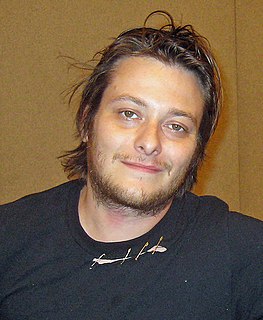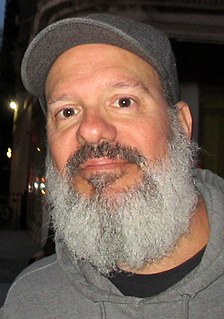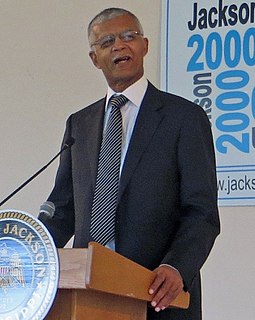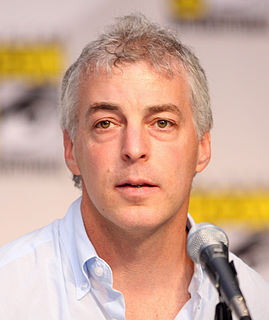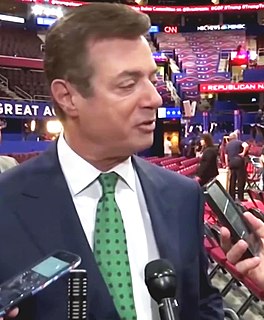A Quote by Edward Furlong
If I was in a room with a bunch of skinheads talking about racism, then I would be disturbed, but after we finished a take, we were normal people again.
Related Quotes
Back when the Bible was written, then edited, then rewritten, then rewritten, then re-edited, then translated from dead languages, then re-translated, then edited, then rewritten, then given to kings for them to take their favorite parts, then rewritten, then re-rewritten, then translated again, then given to the pope for him to approve, then rewritten, then edited again, the re-re-re-re-rewritten again...all based on stories that were told orally 30 to 90 years AFTER they happened.. to people who didnt know how to write... so...
When we talk about economic growth, we're not talking about bringing a bunch of companies in that can make a bunch of bucks and hope they spend 'em in our city. We're talking about creating jobs, creating new companies and then we move from there to talk about cooperatives which can become some of those jobs, some of the solidarity economy where we can begin to band together people so they'll understand that a job is not a single individual affair but a collective affair.
What's actually amazing is that, after a couple of years of living with characters and writing characters and talking about characters, as we sit in the writers room and break episodes, it strikes you, every once in awhile, that you're talking about a character that's played by the same actor, who you've been talking about forever. We talk about a character dying, so you get emotional, and then you realize, "Oh, but wait, that actor is still on the show."
Trump is an outsider; maybe you don't know. So he is sitting in a room: he is talking business, he is talking politics - in a private room, it's a different persona. When he's out on the stage, he is talking about the kinds of things he's talking about himself; he's projecting an image that's for that purpose.
People believe that there's no room for change, there's no room to grow and if we're talking about this idea of God which is the infinite then there's no way that there's no room to grow because infinity is endless. So there must be more room to understand more and to evolve the way we think about this idea.
I was, like, "Wow, is this ever going to happen again? Am I ever going to work with another bunch of people I get along with this well?" And then, sure enough, Threshold was just a great bunch of people, and I thought, "Hey, I could hang with these people for a long time!" But, unfortunately, it was 13 episodes and we were out of there.
I made a note in my head to be aware of things as they were happening, because they might not happen again. Up to that point, I was not really that appreciative of what was going on, or thinking about documenting life in a plainspoken manner. I was talking about my life and writing songs, but then I would go back and listen and they were about dreams, and legends, and metaphors and that was just not my life!
After you do a joke a few times, you have material that you know works. Although sometimes I have a joke that has worked a bunch of times and then one night it’ll flop. And that’s when I really take a hard look at myself and say: "Well, that crowd is obviously wrong. That crowd has absolutely no idea what it’s talking about."
After you do a joke a few times, you have material that you know works. Although sometimes I have a joke that has worked a bunch of times and then one night it'll flop. And that's when I really take a hard look at myself and say: 'Well, that crowd is obviously wrong. That crowd has absolutely no idea what it's talking about.'
Hip hop is usually a bunch of guys talking to a bunch of guys, in my experience. It's homosocial, not homosexual, in that it's almost always all one gender in a room where it's being created. That locker-room environment has an impact on the language. I think the music suffers 'cause it allows an almost cartoonish level of misogyny.
I'm actually kinda quiet off stage, a lotta people don't realize that. I was at a dinner party recently, a bunch of people that I don't know, one guy talking plenty for everybody. "Me myself right and then I and then myself and mee, me, I couldn't tell this one about I cause I was talking about myself and Me- Meee- Mee- Me- Me!" Beware the Me monster.
